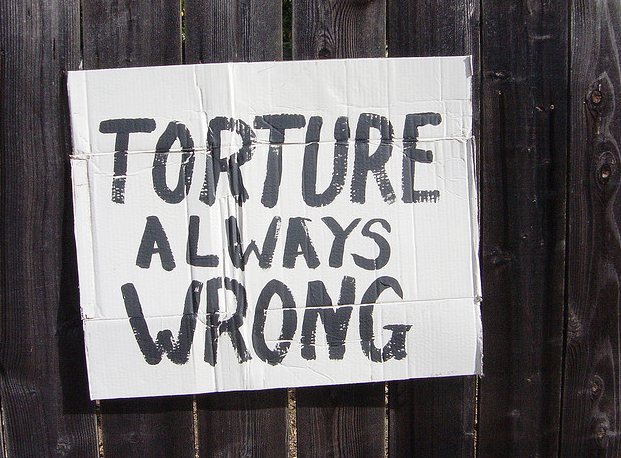Yet another Hollywood movie has been pumped out too soon and once again we are left scrambling for the truth. Kathryn Bigelow, who some of you may remember for her Academy Award winning film The Hurt Locker, has revived the old torture debate with her newest film, Zero Dark Thirty.
The film, which depicts the events leading up to Osama bin Laden’s capture, has attracted waves of criticism and protests from politicians and film critics alike. Yet, while Senators such as John McCain and Dianne Feinstein have noted that there is a clear “discrepancy between the facts [and] what is depicted in the film,” the majority of outside criticism has pointed to Bigelow’s apparent pro-torture stance in the movie.
In an op-ed for the Huffington Post, Jonathan Kim called the film’s gruesome torture scenes “unforgivable” and Dan Froomkin, also of the Huffington Post, called the movie “despicable.” According to critics, Zero Dark Thirty makes the bold conclusion that torture was essential in the manhunt for Osama bin Laden. Personally, I cannot criticize the movie as I have not yet seen it. However, in light of the recently revived debate, I would like to remind our readers why the international community condemned torture in the first place.
Firstly, torture is inherently unethical. Chemical arms and weapons of mass destruction are extremely effective in accomplishing military agendas, yet we do not employ them in warfare. Why? Because the world’s courts have deemed them unethical. Because such weapons are capable of inflicting unnecessary amounts of pain on our enemies. Because we are human beings and can only go so far in accomplishing our goals before becoming that which we are fighting to destroy. Thus, torture, too, should be viewed in a similar light.
Additionally, torture, according to international law, is illegal. Article 5 of the United Nations Universal Declaration of Human Rights states that: “No one shall be subjected to torture or to cruel, inhuman or degrading treatment or punishment.” The United Nations Convention Against Torture outright bans the use of torture.
Some proponents of torture use the argument that such restrictions do not apply to terrorists, as they are stateless citizens. Yet this argument is vague and not rooted in reality. When it comes to torture, the UN is clear in its judgment. There is no ambiguity in its verdict. Torture is simply wrong.
Finally, people, especially when faced with time constraints and highly stressful situations, are prone to making mistakes. Over the last decade, the Pentagon has been responsible for countless false accusations and for wrongfully imprisoning misidentified individuals. In 2003, for example, Khaled El-Masri, a car salesman from Bavaria, was captured by United States officials and was repeatedly beaten, sodomized and waterboarded over the course of four months. When the CIA finally realized that they had abducted the wrong man, they released Khaled without any kind of payment or even the slightest apology. Ultimately, while torture can be useful in obtaining valuable information, the risks of hurting the wrong individual are too great and must be taken into account.
For now, at least, it seems as if we are headed in the right direction. Shortly after starting his first term in office, U.S. President Barack Obama issued an executive order to limit the use of torture as an interrogation technique, especially on “those who would intimidate, torture and murder people for exercising the most basic freedoms.” He went on to say that “if we are to win this struggle and spread those freedoms, we must keep our own moral compass pointed in a true direction.” Good talk Obama. Good talk.
